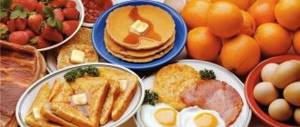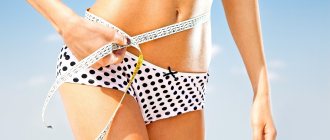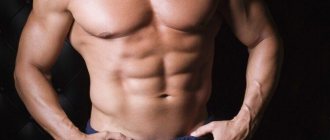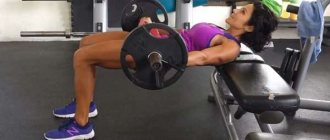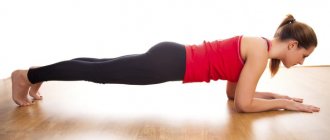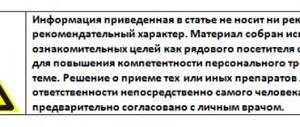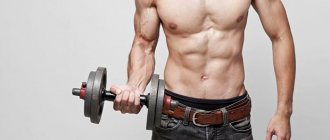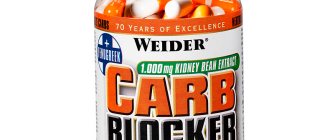What is proper nutrition for athletes?
By proper nutrition, an athlete understands all the food that has beneficial properties for him. It is worth noting that this is not a food that is needed only to satisfy hunger.
Food for athletes provides a number of beneficial features, namely:
- supplies the body with all useful elements;
- normalizes metabolism in the body;
- regulates body weight;
- changes the overall appearance of the body.
An athlete’s diet must be properly composed so that all of the above can be achieved.
It is important to remember that proper metabolism is the key to a slim and beautiful body for a man. If it is disturbed, fat will begin to be deposited, which will be much more difficult to get rid of.
No matter how much a person trains, if he eats everything, any activity will have no meaning.
As for body weight, for each athlete his personal weight is no less important. Each sport has its own weight categories that must be met.
In addition, weight should be harmoniously combined with height so that there is a balance of height and weight. This is important for every person who plays sports.
Nutrition for athletes for every day will help maintain muscle mass in the desired condition. If a person has just started playing sports, he needs to correctly draw up his diet and the list of products that will be included there.
As a result of proper nutrition and training, the future athlete will receive an attractive, muscular body.
Menu for every day
Proper nutrition - six meals a day. At the same time, the athlete is provided with a constant flow of energy, he is not able to overeat, and food is absorbed much more fully. Seven meals a day are considered optimal. But you should first get used to six meals.
Athletes with a large volume of food consumption lack essential vitamins and microelements. This deficiency can be eliminated either by daily consumption of 400 grams of vegetables and 500 grams of fruits and berries, or by vitamin complexes.
It is important to maintain a weight balance between carbohydrates and proteins in a 2:1 ratio. Drink at least 2 liters of water per day. You should drink before meals or an hour after it. Before your first breakfast, drink a glass of water with squeezed lemon juice. This will help the body cleanse itself of harmful metabolic products much more effectively.
- First breakfast: protein shake made from highly purified hydrolyzed whey protein isolate. This cocktail is digestible in 15 minutes. You can drink a glass of fruit or vegetable juice instead of a cocktail.
The first breakfast should launch metabolic processes in the body. Before it, do a morning jog or light exercise, and take a contrast shower. In the first half of the day, the main volume of carbohydrates and proteins is consumed in the menu. These energy providers will start the work of the whole body. If the diet is followed, the athlete does not feel hungry.
- Second breakfast: a portion of oatmeal porridge, an omelet of 4 eggs, 2 slices of bread, 1 fruit, a multivitamin tablet.
At this time, you should have a thorough snack. The amount of food is the same as at lunch. In the first half of the day, the athlete can afford those foods that are prohibited for dinner, for example, fruits can be included in the menu. You can replace a multivitamin tablet with a glass of milk.
- Lunch: 150 grams of veal (any lean meat), 300 grams of rice, 100 grams of fresh vegetables.
Second solid meal. Fruits are no longer consumed as natural sweets after lunch.
- Afternoon snack: a portion of oatmeal, a glass of milk.
The main difficulty in organizing an afternoon snack is the ability to find time for it and prepare the necessary products in advance. The way out of this situation is to develop a conditioned reflex to fractional meals.
- Dinner: 200 g turkey breast, 300 g boiled potatoes, 100 g vegetables.
Dinner must be no later than 18.00. Although many nutritionists do not agree with this statement and allow dinner 2 hours before bedtime. But physiology dictates its own laws. The human digestive system does not work around the clock; it needs time to digest food and rest. Therefore, after 18.00, the hormones responsible for the absorption of food cease to be produced. If an athlete follows the natural cycles of his own body, the health benefits will be greater.
- Evening snack: a glass of kefir or 4 eggs.
A small snack is designed not so much to suppress hunger as to ensure an even supply of nutrients throughout the day. A glass of kefir at night is a classic of Soviet nutrition. Considering the amount of nutrition research being done at the time, there is no need to reinvent the wheel. It's better to follow good advice.
What is a balanced diet for athletes?
The diet should include sufficient amounts of nutrients. These are the nutritional characteristics of athletes; without this little science, all training will be in vain.
You can include any foods in your diet, but they must provide the level of nutrients in the following proportions:
- proteins - 30%;
- fats - 10%;
- carbohydrates - 60%.
Depending on the specific direction in the sport, this formula may vary slightly. This example is standard and universal; it is used by most athletes from different industries.
Before you rush to read labels from the shelves, you need to understand what these elements mean and how beneficial they are for the body.
Proteins, from a scientific point of view, are biopolymers that supply the body with amino acids. Simply put, these substances create favorable conditions for building muscle mass.
Proteins charge the human body with energy and this is the most necessary element in an athlete’s diet. Thanks to them, muscle tissue receives oxygen and the immune system is strengthened.
The easiest way to get proteins is from fish, chicken, and veal. Chicken white meat is considered the most healthy and nutritious. Traditionally, athletes get their protein from eggs and dairy products.
Food products for athletes should also be supplied with fats, but in smaller quantities. The main feature of fats is that our body is built from them.
To maintain the building muscle mass in the body, you need fat, ten percent will be more than enough. Fat is also a source of energy.
Carbohydrates are a simple consumable that is burned in the body during training. There should be a lot of them, the exact match depends on the intensity and frequency of training. They come in two types - complex and simple.
The former, in turn, break down into the latter in the body, thereby receiving even more nutrients. That is why it is recommended to replace simple carbohydrates in the diet with complex ones.
It is convenient that today there are small companies that deliver food to athletes. Thus, a person does not need to put together formulas; he will be offered what he really needs.
Menu for the week
The weekly menu is designed so that the athlete does not go beyond getting enough calories. The range of products should be as diverse as possible. Natural products form the basis of the menu of a person who cares about their health. Creating a menu for the week will help you make the necessary purchases in advance. There will be no need to cook anything in haste.
It is convenient to use the list of dishes for the week posted in the kitchen and follow the proven recommendations. By repeating this technique for a month, you can consolidate the habit of rational and planned nutrition, moving away from the chaos in this matter.
In weight ratio, carbohydrates are consumed twice as much as proteins. They eat at least 1 kg of vegetables, fruits and berries per day, and another 0.5 kg of cereal and bread. Then they eat 700-800 grams of protein food per day. This diet is 3500 kilocalories. Eggs, bread, cheese, milk, cottage cheese, and meat are consumed daily. You can diversify your diet by including different types of meat: chicken, turkey, rabbit, veal, game. Athletes should also eat cereal and vegetables every day. Variety in the menu is achieved by eating porridges: oatmeal, rice, buckwheat, corn, millet. Amaranth grains, spelled cereals and other forgotten grains are now available.
Under increased loads, athletes lack biologically active substances in their diet, which necessitates the need to take vitamins and proteins. However, many people neglect the variety of vegetables. Instead of constantly eating a potato side dish, try preparing a side dish of five types of cabbage, parsnips, turnips, Jerusalem artichoke, scorzonera (Spanish Kozelets), oat root, chufa, stachis, artichokes, green beans, beans. Zucchini, eggplant, carrots, wild garlic - this brings novelty and variety. The composition of vegetables is rich in nutrients, vitamins, and microelements, which is what is required in nutrition.
A professional athlete does not think about creating a menu. It is serviced by specialists who deal with this. However, it is also necessary for a sports professional to know the rules of rational nutrition.
Proper nutrition for athletes is a headache not only for themselves, but also for coaches and even nutrition institutes. Every outstanding athlete contributes part of his experience to this science. The nature of nutrition and the composition of familiar foods are changing. Competition rules are changing. The results become faster, higher, stronger. The person remains the same. And in order not to part with his health for the sake of results, the athlete must thoroughly know and use the rules of proper nutrition.
THESE ARTICLES WILL HELP YOU LOSE WEIGHT
Your feedback on the article:
( 821 ratings, average: 4.51 out of 5)
